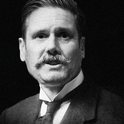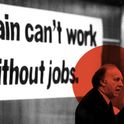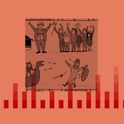The comments posted by many of those who responded to my blog yesterday were heartfelt and thought-provoking – demonstrating the wide-spread dismay caused by the torture and death of Baby P. Paul, however, disagreed with my argument that Haringey Council and other agencies involved in child protection should be held responsible at this early stage, even before Lord Laming’s inquiry has reported.
This view has got some traction in the media, part of a broader tendency on the progressive side of the fence to view media storms with suspicion. Peter Wilby, for instance, is a normally shrewd observer of the worst excesses of Daily Mail journalism. In his latest guardian piece Wilby tries for balance, placing at least some of the blame for the current controversy with: "the tendency of rightwing newspapers to assume social work and socialism (along with sociology) are the same sort of thing, and that the profession's very existence contributes to "the dependency culture".
I understand this point of view, and those of Paul in the comments to my previous post, and those of others like them want to let the review take its course. But I disagree with them, profoundly, at least in part because I, too, was once put in the care of social services....
Baby P was attacked, and died whilst he was, nominally at least, in the care of the state. (A child can be “in care” and, at the same time, be at home; a little known fact). I hold to my belief that all of those involved in Haringey Children’s Services need to take responsibility. And I add to that list those at Ofsted who carried out a “desk-based” research exercise to pass the service as adequate, and also those civil servants who sent the Haringey whistleblower on a “track down the responsible agency” hunt; they should search their consciences too. Undoubtedly, some of them should resign because they made mistakes, when their help was most needed help.
There is enough evidence out there to support the contention that the child protection system failed Baby P and, of course, one glaring, incontrovertible fact: he died despite the fact that child protection system was supposed to have prevented him from harm. I’m not afraid of being told that I’m moralising, as Paul said, on this front: this matter lies close to my heart. I, like Baby P, was in the care of the state. My fate, like Baby P’s, at one stage, lay in the hands of social workers. My social workers spent the summer of 1967 waiting to see whether I would pass muster as a white child. (I am mixed race). Luckily, for me, I was deemed “white enough” to be adopted” and the social worker concluded: “One could not call her coloured if one did not know”. And, with that, I was freed for adoption.
Instead of ending up in a children’s home in the 1970’s, like many of my mixed race peers, I was rooted and flourished in a loving family. Some of my mixed-race peers, who ended up in children’s homes at the same time, were sexually abused; I was not. Instead, I was well-educated, went to university, and now work as a social affairs journalist and children’s writer for a living – both jobs that I love. I have been lucky enough to become everything that I could have been because I had a good childhood with loving parents. (Of course some children do really well in the care system – they have loving foster carers or committed key workers in children’s homes – but we all know that this remains the exception, rather than the rule and that life chances for children in care are far lower than in the general population). In Baby P’s case, the lesser of two evils would have been to remove him from his birth family and place him for adoption or fostering. This didn’t happen. Baby P’s chances to become all he could have been were taken from him – and so I hold to what I said in my last post – the state and Haringey failed him when he needed them most.
Katharine Quarmby is a contributing editor to Prospect and is writing a memoir about her adoption.
Baby P: For once, the "reasonable" voices are wrong
November 19, 2008

The sun gets it right











